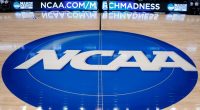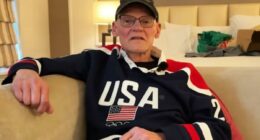Share this @internewscast.com
Editor’s Note: This article contains mentions of rape or sexual assault which may be distressing. Reader discretion is recommended. Assistance and confidential resources can be accessed via the National Sexual Assault Hotline website or by calling 1-800-656-4673.
(NewsNation) — A jury has convicted Sean “Diddy” Combs on two counts of transportation for prostitution. However, he was acquitted of racketeering and sex trafficking charges, which could have led to a life sentence.
The decision comes after 13 hours of deliberation over three days by a jury consisting of eight men and four women.
The deliberation on Tuesday concluded with a deadlock when jurors informed Judge Arun Subramanian that while they had reached a unanimous decision on the sex trafficking and transportation for prostitution charges, they had not reached one on racketeering.
The jury came back with a verdict one hour after meeting on Wednesday.
Combs was charged with one count of racketeering conspiracy, two counts of sex trafficking and two counts of transportation to engage in prostitution.
He was convicted of flying people around the country, including his girlfriends and paid male sex workers, to engage in sexual encounters, a felony violation of the federal Mann Act.
But the jury acquitted him of racketeering conspiracy and sex trafficking charges, related to allegations that he used his money, power and frightening physical force to manipulate his girlfriends into hundreds of drug-fueled sex marathons with the men.
Combs and his defense team argued that the women were willing participants and that none of his violence justified the severity of the charges.
The trial lasted seven weeks and included testimony from 34 witnesses.
What is the maximum sentence Diddy’s charges carry?
Racketeering and sex trafficking carry a maximum sentence of life in prison.
The sex trafficking charge also carries a mandatory minimum sentence of 15 years. Transportation for purposes of prostitution carries a maximum sentence of 10 years.
What happened during the Diddy trial?
The government’s case brought on several former employees of Combs’ Bad Boy Entertainment companies, but its most noteworthy witnesses were two former partners, singer Casandra “Cassie” Ventura and “Jane,” a social media influencer who testified under a pseudonym.
Ventura, who was late term in her pregnancy at the time, testified over four days about the decade-long abuse she said she faced at Combs’ hands. She said she felt pressured to engage in hundreds of sexual events, dubbed “Freak Offs,” with sex workers. These encounters were often filmed, and Ventura said she was threatened by Combs, who used the videos as leverage over her.
Jane testified for six days about sexual performances she called “hotel nights,” saying she felt coerced into engaging in them as recently as last August but did so because she loved — and still loves — Combs.
Ventura was in a relationship with Combs from 2007 to 2018, while Jane was with him from 2021 until his arrest last year.
Prosecutors and defense lawyers played several minutes of recordings of the “freak offs” and “hotel nights.”
The jury also faced its share of drama when Judge Arun Subramanian excused one juror for not being truthful during the selection process about his place of residence.
The juror had casually mentioned to a member of the court staff that he had moved in with his girlfriend in New Jersey, which is outside the jurisdiction of the Southern District of New York.
What prosecutors argued in Diddy trial
In their closing statements, the government painted Combs’ criminal enterprise as his “kingdom.”
Assistant U.S. Attorney Christy Slavik told the jury that Combs was someone “who doesn’t take no for an answer” and “counted on silence and shame” to enable his abusive behavior.
She pointed to his “small army” of assistants and bodyguards — some of whom were called to the witness stand earlier in the trial — to help him harm women and help cover it up.
“When someone commits a crime as part of a group, they’re more powerful and dangerous,” Slavik said. “The defendant was a powerful man, but he became more powerful and dangerous because of his inner circle, his businesses — the enterprise.”
What Diddy’s defense attorneys argued
While the prosecution presented a robust case, defense attorneys wrapped up theirs within hours, with no witnesses.
Much of their argument rested on the theory that all of the accusers were consenting adults and that no one was forced to participate in Combs’ sexual events.
They relied largely on text messages between Combs and his ex-partners to show that the women were willing and even arranged for the sexual encounters at times.
Defense attorneys used their closing statements to call Combs’ prosecution overkill, saying that he was being put on trial for his sexual proclivities and lifestyle choices.
Attorney Marc Agnifilo said prosecutors had “badly exaggerated” evidence of the swinger lifestyle and threesomes to combine it with recreational drug use and call it a racketeering conspiracy.
“He did not do the things he’s charged with. He didn’t do racketeering conspiracy and sex trafficking,” the lawyer said.
He also mocked the prosecution’s assertion that Combs and his underlings had engaged in hundreds of racketeering acts and their suggestion that many of his so-called “Freak Offs” and “hotel nights” were crimes.
He said Combs and Cassie had a “loving, beautiful relationship,” albeit a “complicated” one.
“If racketeering conspiracy had an opposite, it would be their relationship … they were deeply in love with each other,” Agnifilo said.
The Associated Press contributed to this report.










